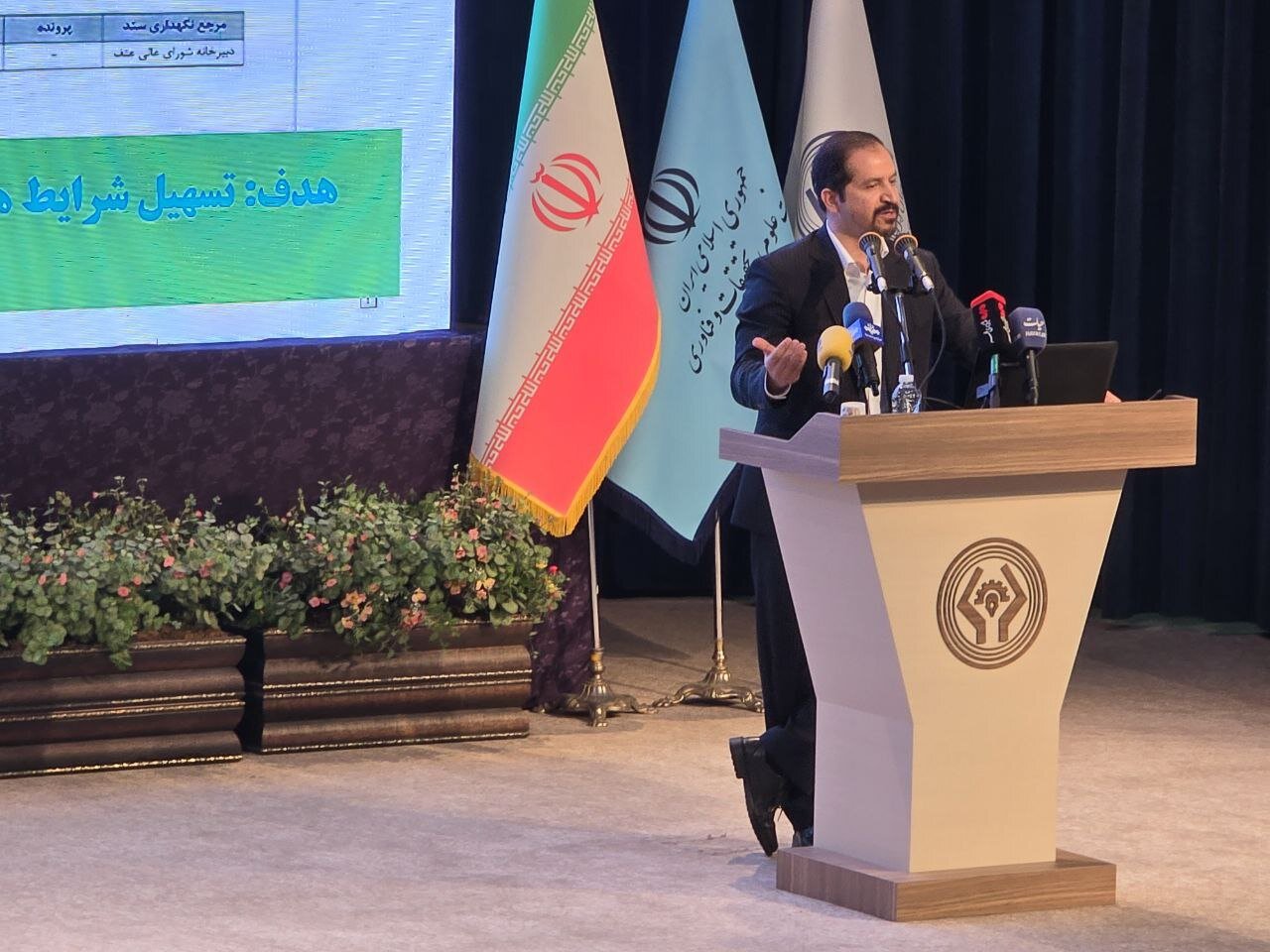According to Mehr reporter, Dr. Peyman Salehi, at the meeting of presidents of universities, higher education, research and technology institutions of the country, which was held today, Saturday, 24th of Shahrivar, at the Abu Rihan International Conference Center of Shahid Beheshti University, pointing out that in the seventh development plan, reaching the scientific rank of 14 It has been predicted, he said: The graph of scientific rank shows that we had the highest acceleration of scientific growth in a period, but in recent years, the graph of the trend of scientific growth has flattened.
Stating that we are currently ranked 17th in Web of Science and 16th in Scopus, he said: Turkey, Brazil, Netherlands, Saudi Arabia are countries that are around us in the ranking.
Research Deputy Minister of Science stated that the decline in scientific growth in Azad Universities, the Ministry of Science and the Ministry of Health was the same, and we observe a decline in scientific growth in all of them. This shows that something has happened in the country that has caused this decrease in the growth of its science.
He added: In 2010, the allocation of the government’s share of the budget to the Ministry of Science was 2 billion dollars, and in 1402, this amount reached 1 billion dollars.
The most important reason for the decline in scientific growth
Emphasizing that the most important reason for the decline in scientific growth is the issue of financing and international communication, Salehi continued: The average budget in universities that are among the top 100 universities in the world is more than 1,400 million dollars, universities that rank between 100 and 200 have an average of 600 million dollars and universities ranked below 500 have an average budget of 400 million dollars. So there is a direct relationship between funding and ranking.
He stated: One of the goals of the 7th Development Plan is to include 20 Iranian universities with a rank below 500 in one of the ranking systems. Currently, our university ranks below 500 in the QS5 ranking.
Emphasizing the determination of fixed income in the budget lines for research and technology, he said: In various laws, lines have been defined for the budget, such as allocating a share of tobacco revenue to the Ministry of Health. We also presented to the Parliament an item in the budget of 1403 to allocate a percentage of condensate sales to the Supreme Council of Ataf, but it was not voted on the floor of the Parliament.
The Deputy Research Minister of Science emphasized: We do not say why one department has a large budget and we do not. We must seek to increase our share. One way is that in the budget rules, we can bring a fixed percentage of customs revenue, export revenue, etc. to research and technology.
The share of research and technology in the gross domestic product in our country was about half a percent in recent years
Emphasizing that higher education is different from research and development, he explained: According to the comprehensive scientific map of the country, the share of research and technology in the GDP was supposed to reach 4% (2% government and 2% private) by 1404. . The share of research and technology in the gross domestic product in our country has been about half a percent in recent years.
Salehi said about the situation of the neighboring countries: the gross domestic product of some neighboring countries has reached one trillion dollars. With such investment, professors, researchers and students of the country are really fighting jihad.
Referring to the capacity of endowment, he said: We did not take the issue of endowment seriously, even though we have legal obligations in the field of endowment. In the statements of the leadership, the entry of endowment into the field of higher education has been emphasized. In a period of time, Harvard University has donated 55 billion dollars. We also need to work more in the field of endowment and donation.
Research Deputy Minister of Science pointed out the capacity of using the finance law and said: The use of finance capacity was also in Dr. Simai’s program. Universities can use up to 30 billion euros of finance.
Referring to the leadership’s agreement to withdraw from the development fund, he said: When the leadership agreed to the president’s request to withdraw from the national development fund, Dr. Simai wrote a letter to the president. It is true that the salaries of nurses, arrears of farmers, etc. are important, but attention should also be paid to research and technology.
It is wrong to imagine the defense authority without the help of the university
Salehi stated: If we imagine that the issues of food security, defense authority, health and hygiene, environment protection and knowledge base happened without the cooperation of universities, it is wrong.
He pointed out: It’s not like we haven’t done anything in the field of communication with the industry. We have 11 thousand 200 current contracts related to the industry, the amount of which is 6 thousand billion Tomans. Currently, 140,000 people are working in the technology units and it has a high employment capacity.
Deputy Research Minister of Science:
We have not yet reached one article per faculty member
The research deputy of the minister of science stated that the issue of publishing scientific articles should not be placed in front of industrial and technological activities and said: “We have not yet reached one scientific article per faculty member. We have 80,000 academic faculty members, but the publication of our articles is not that much.” .
Dr. Peyman Salehi also said in the panel of the chairmanship of the university presidents’ meeting: “The most important issue that we emphasize is the use of the capacity of articles 11 and 13 of the law on the jump of knowledge-based production.” In recent days, we had a meeting with Dr. Afshin, the president’s scientific and technological assistant. He is sensitive about this issue and wondered why universities have not used this capacity well so far.
Pointing out that there is a concern that the tax organization will not be under the burden of implementing this legal provision, he said: I personally held meetings in some provinces with the presence of governors to use this capacity. The presence of the governors will help the provinces to take this issue seriously.
Referring to the issue of settlement of research contracts, the vice president of research said: the settlement of accounts of research contracts should be issued without applying any coefficient and monetary demand, provided that the university does not owe money to the social security organization. I personally have been involved in this issue for 20 or so years.
He added: The last thing we did in the previous government in this regard was that a meeting of university presidents was held with the then minister and the minister approved the contracts. But the social security organization did not fall under the burden. We are following this issue and I hope that this issue will be implemented this year.
The Deputy Research Minister of Science emphasized that this year’s comprehensive research regulations should be implemented and said: Universities should implement it based on their internal regulations. If the problem is financial resources, they should pay a fraction of it using their internal regulations.
Emphasizing the importance of publishing scientific articles, Salehi said: Be careful not to put the issue of publishing scientific articles in front of industry and society. These are not opposites.
He emphasized: “We still haven’t reached one scientific article per faculty member. We have 80,000 academic faculty members, but the publication of our articles is not that much.”
The Research Deputy of the Minister of Science said: We cannot build technology on a foundation that is not for us. The production of science and technology are in line with each other, not against each other.
He added: Even the current promotion regulation has the same capacity to consider points for various activities of academic staff members. It is enough for the universities to choose diverse members of their audit committee. Use people who write articles, are active in the field of technology, work in the field of humanities, and consider points for each activity.
He emphasized: We have passed the issue of article quantity for many years. Writing articles and moving towards technology are mutually supportive.
RCO NEWS

















